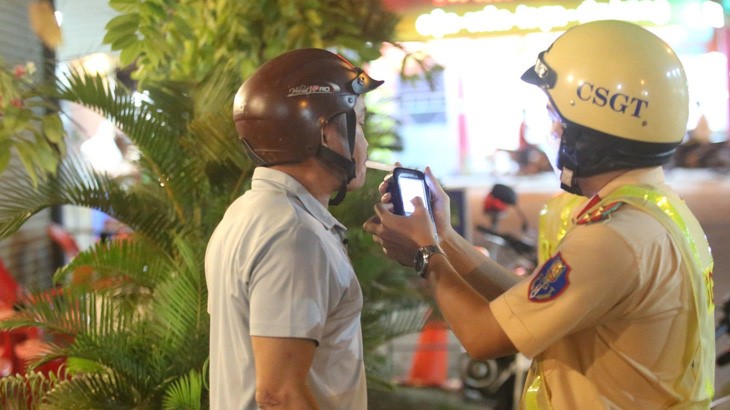Many deputies of Vietnam’s law-making National Assembly (NA) and experts have thrown their support behind the regulation that drivers must be completely sober to ensure the strictness of the law and commuters’ safety.
Recently, there have been controversies over Vietnam’s zero-tolerance policy for drunk driving.
Vietnam’s law stipulates that drivers must be completely sober, without consuming any amount of alcoholic drinks, while operating bicycles, motorbikes, automobiles, or any other vehicles on the road.
Some people suggested a blood or breath alcohol limit for drivers.
Bui Hoai Son, a permanent member of the NA’s Committee for Culture and Education, cited the National Traffic Safety Committee’s 2022 data as saying that drunk driving was among the three main reasons for traffic accidents in Vietnam.
Drunk drivers caused some 40 percent of traffic accidents in the Southeast Asian country and 11 percent of deaths in such crashes.
Some 700 drivers violated the alcohol level per day.
The numbers have fallen but violations remain rampant despite strict penalties, such as jail terms, heavy fines, and driver's license revocation, Son said.
In spite of the stringent punishment of DUI drivers over the past few months, it depends on the drivers’ awareness to make sure that they do not drink alcoholic drinks before driving.
The absolute ban on drivers with any level of blood alcohol content stipulated in the draft law on road traffic order and safety is a solution to develop the habit of not driving after drinking.
It is not necessary to set a blood or breath alcohol limit, according to Son.
If there is a limit, residents will be unable to determine how much they can drink to have their blood alcohol levels under the limit, in addition to state agencies’ difficulties in imposing sanctions, he explained.
Changing the 'drinking culture' in Vietnam will definitely be time-consuming and hard, which requires the strict adoption of regulations on the sale, promotion, and consumption of alcoholic beverages.
Enhancing public awareness regarding the risks and consequences associated with consuming alcoholic drinks before driving is equally crucial.
According to Dang Bich Ngoc, an NA deputy from northern Hoa Binh Province, the Ministry of Public Security has drastically dealt with alcohol level violations, especially before, during, and after the 2024 Lunar New Year holiday, commonly known as Tet.
This has contributed significantly to ensuring traffic safety and social order, preventing accidents, and developing the habit of not driving after drinking.
Police have handled violators without any exception, even officials. This serves as an example for residents and contributes to increased revenue through fines imposed on individuals violating blood alcohol level regulations.
As a result, the zero-tolerance policy for drunk drivers is reasonable as it helps protect residents’ lives and ensure traffic safety.
Dr. Nguyen Huy Quang, former head of the Department of Legal Affairs under the Ministry of Health, said when developing the law on prevention and control of harmful effects of alcoholic beverages, Vietnamese ministries and agencies referred to the laws of other countries and found that some 20 nations require a zero blood alcohol concentration level when a person drives a vehicle.
The regulation may be different in developed countries, but residents in these countries do not use many motorbikes like in Vietnam.
In reality, many people still drive after drinking alcoholic beverages and even cause traffic accidents despite strict regulations.
Therefore, the regulation of a zero blood or breath alcohol level is completely appropriate and there is no need to discuss it more, Quang noted.
Without tight regulations, Vietnam could not tackle drunk driving.
Over the past time, the drunk driving curbing campaign has helped improve social order and traffic safety, the ex-official added.
Like us on Facebook or follow us on Twitter to get the latest news about Vietnam!
















































